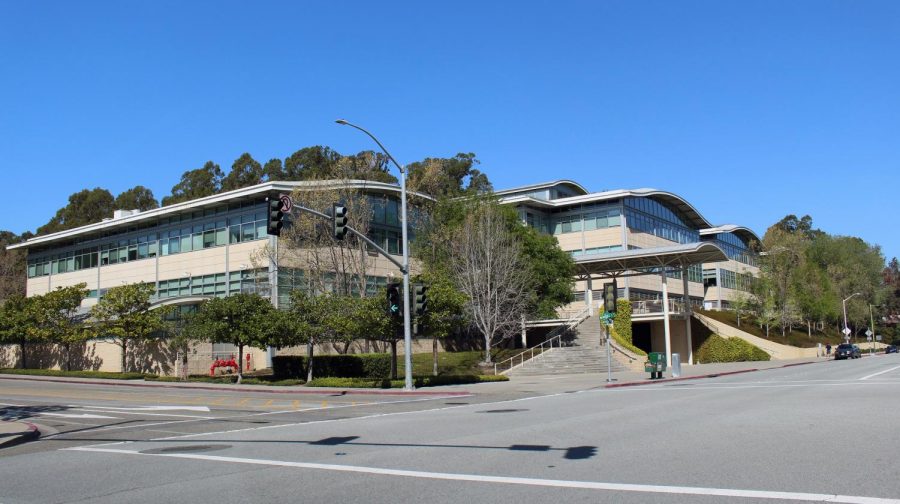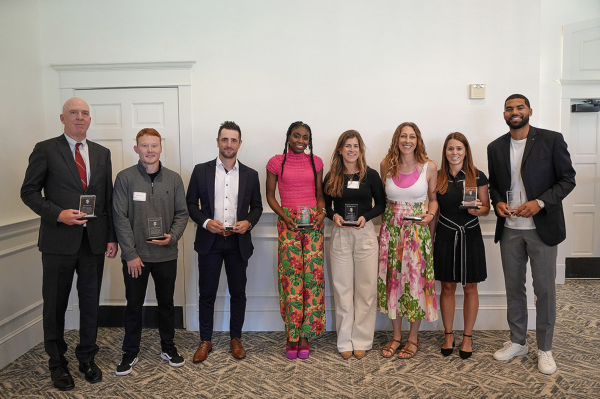Filtering social media needs to promote freedom of speech while preventing violence
The world today is more accessible than ever, but social media needs to balance freedom of speech and accuracy.
Coolcaesar via Wikimedia Commons, Creative Commons
A shooting at YouTube headquarters was prompted after Nasim Najafi Aghdam blamed YouTube for her declining popularity.
Media is a megaphone; it’s a platform where individuals can deliver their voices to people all around the world. Media is a common space; it’s a hub where people of all ages and identities can relate and unite. Media is an asset; it’s a library where information of all kinds can be attained. The expansions of media, including social, public, and all others have led the development of the 21st century. Social media is the single most prominent form of communication, public media conveys the most diverse knowledge, and the internet provides extensive knowledge on any given topic.
The world today is more accessible, more dynamic, and more rapid than ever before because of the enlargement of the media network. Media, however, has also become a deception. Certain places in media have been polluted by violent and radical rhetoric which plagues dark sides of the society.
On April 3, Nasim Najafi Aghdam openly fired at the YouTube Headquarters before killing herself after injuring three people. The police department said, “We know she was upset with YouTube, and now we’ve determined that was the motive.” Aghdam was an active YouTube user who posted videos online. She advocated for animal rights and veganism through her videos.
Once Aghdam’s views on her posts began to decline, she quickly turned to YouTube to blame for her diminishing popularity. According to the East Bay Times, Nasim Aghdam’s father said, “She was always complaining that YouTube ruined her life.” Aghdam had also previously posted videos online titled “Discrimination Filteration On YouTube” and asserted that she is being discriminated for her veganism.
Another shooting has shone a light on gun violence once again but YouTube’s censorship has started a conversation as well. Do they have the right to restrict certain materials from being posted?
How can they determine which posts are appropriate or not? The whole conversation paints a larger picture of the clash between media censorship and freedom of speech. I believe that the media should be accessible to all, but networks have the absolute right to filter any types of speech that infringe on other people’s basic rights.
Freedom of speech is guaranteed by the Universal Declaration of Human Rights established by the U.N. along with the United States Constitution. It is considered an elementary right for all people, but it doesn’t stand above other human rights such as “life, liberty and security of person” or “free and equal in dignity and rights.”
I’m not championing that materials of disagreement should be surveilled but materials of threat against personal rights should be censored by all means.
Over the last decade, we’ve witnessed terrorist attacks largely motivated by online radicalization. On April 15th 2013, Dzokhar Tsarnaev and Tamerian Tsarnaev carried out a bombing during the Boston Marathon killing three and injuring 264.
On October 31st 2017, Sayfullo Sapiov drove a rented truck through runners and cyclists for about one mile of Hudson River bike path in New York. Sapiov killed eight people while injuring twelve. According to USA Today, “before Dzhokhar and Tamerlan Tsarnaev allegedly placed bombs on Boston’s Boylston Street, Tamerlan watched YouTube videos of extremist Muslim preachers, and possibly plucked the recipe for a pressure-cooker bomb right off a virtual shelf.”
The Time Magazine reported that Sapiov admitted that 90 ISIS propaganda videos had inspired him to commit atrocities and the New York Police Department’s Deputy Commissioner of Intelligence and Counterterrorism John Miller told journalists that Saipov appeared “to have followed almost exactly to a ‘T’ the instructions that ISIS has put out in its social media channels before, with instructions to their followers on how to carry out such an attack.”
Unfiltered online materials has caused a disturbance in the global community. From the terrors inspired by terrorist propagandas to foreign election intervention on outlets like Facebook, more problems arose as the media platform expanded uncensored. Although many media outlets have strict guidelines on subjects uploaded, they’ve failed to overlook sites that engage in hate crime or propagandistic content.
Now, I do see the fear of media filtering in today’s world; the criteria for appropriateness is subjective. With the series of harmful outcome that has resulted from the lack of control in the media, media corporations and the legislature has to cooperate to ensure the majority’s basic rights.

















































